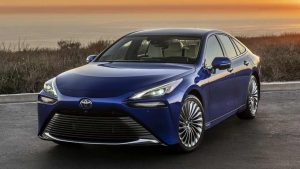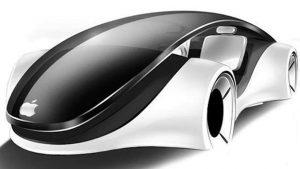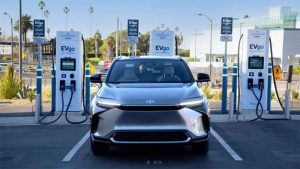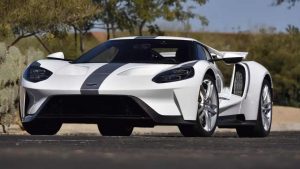Mazda Explores Seaweed and Algae-Based Biofuel for Combustion Engines

Japanese Automaker Collaborates with Hiroshima University to Develop Low-Emission Biofuel
While the automotive industry increasingly focuses on future electric vehicles and low emissions, Mazda is taking a unique approach by exploring the use of seaweed and algae-based biofuel for current internal combustion engine (ICE) cars. Collaborating with Hiroshima University since 2015, Mazda aims to develop a low-emission biofuel that could serve as an alternative to traditional gasoline.
Genome Editing of Nannochloropsis Algae
The initiative involves genome editing of the Nannochloropsis genus of algae, known for its rapid growth and high production of naturally occurring fats suitable for biofuel. This biofuel, similar to bio-ethanol, could be used as an alternative to gasoline in Mazda vehicles, including models like the Mazda MX-5 Miata.
Partnership with Hiroshima University
Mazda’s collaboration with Hiroshima University has been focused on addressing the challenges associated with developing seaweed and algae-based biofuel. Professor Atsushi Sakamoto of the Graduate School of Integrated Sciences for Life at Hiroshima University highlights that while the oils produced by Nannochloropsis can be converted to biodiesel, there are still significant hurdles to overcome for practical and cost-effective implementation.
Advantages of Algae and Seaweed
Algae and seaweed present several advantages for biofuel production, including rapid growth in various climates, adaptability to both fresh and saltwater environments, and the ability to thrive without occupying valuable crop space on land.
Challenges and Carbon Neutrality
Despite the potential benefits, challenges such as scaling up production to achieve cost competitiveness remain. The seaweed and algae-based biofuel, while not fully carbon-neutral, offers a low-CO2 alternative that aligns with Mazda’s goal to achieve carbon neutrality by 2035. The initiative acknowledges the reality of the existing global fleet of over 1.3 billion combustion engine vehicles and aims to contribute to reducing their emissions.
Racing Tests and Future Prospects
Mazda has already conducted tests on the racetrack, utilizing the Mazda2 Bio Concept race car powered by biodiesel created from cooking oil and microalgae fats. Additionally, an MX-5 Miata racer has been running on synthetic fuel. While Mazda has not provided a timeline for commercial availability, the ongoing research reflects a commitment to finding innovative solutions for reducing emissions from existing combustion engines.
Mixed Approach for Climate Neutrality
The exploration of seaweed and algae-based biofuel adds to the growing recognition that a mixed approach, incorporating electric vehicles (EVs), hydrogen, and alternative fuels like synthetic fuel, could play a role in achieving climate neutrality. Mazda’s initiative aligns with a broader strategy to offer drivers choices for carbon-neutral mobility, considering the diverse range of vehicles on the road.
As the automotive industry continues to evolve, innovative solutions such as seaweed and algae-based biofuels showcase the industry’s commitment to sustainability and addressing the environmental impact of transportation. The future may see a diversified landscape where different technologies coexist to achieve a collective goal of reducing carbon emissions.







